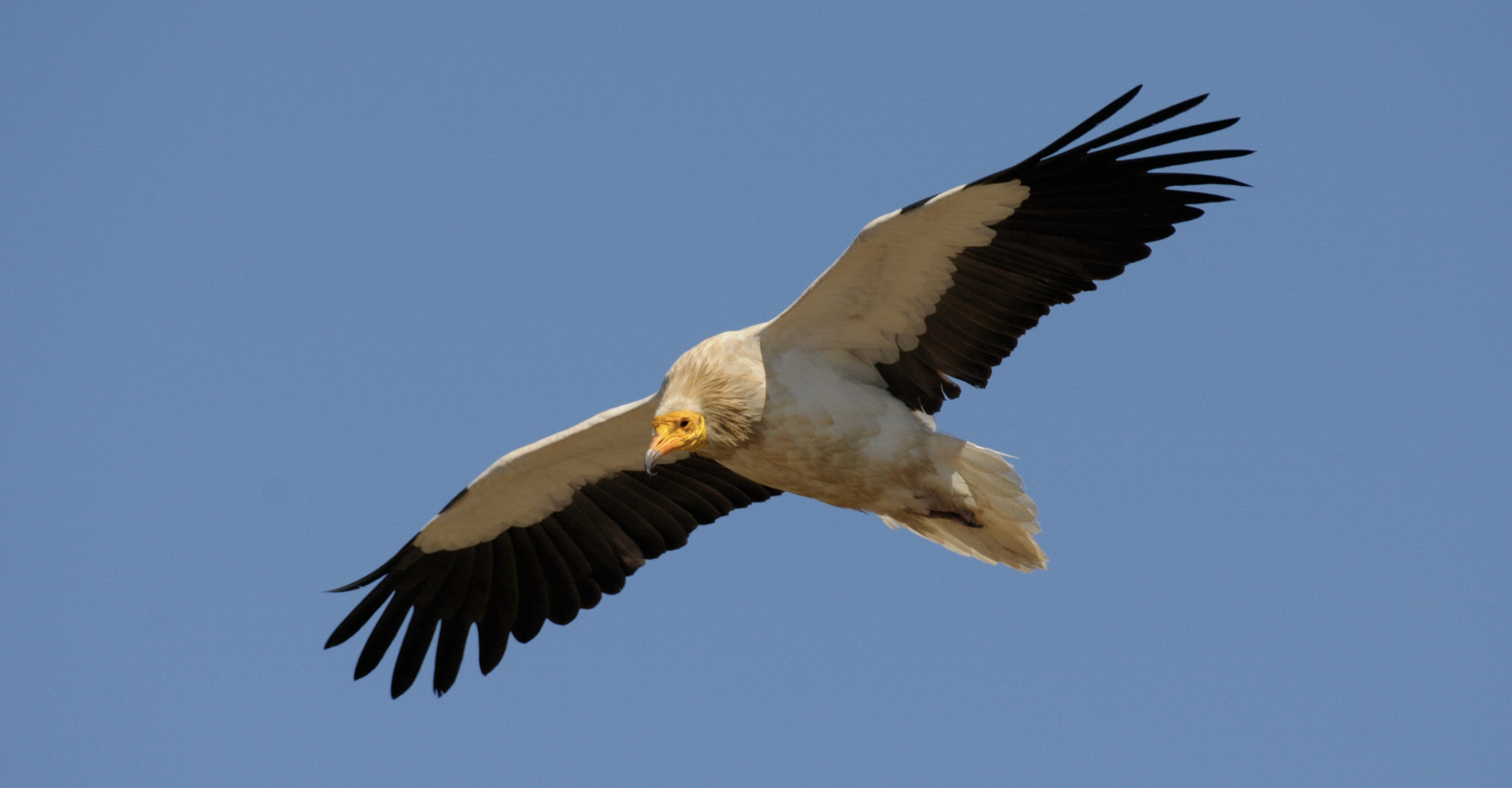The second one of the 5 Egyptian vultures tagged in our LIFE RUPIS project has started migration – it started flying south from the Douro canyons on the 29th August (see map), and yesterday crossed the Gibraltar strait into Morocco – confirming they take about two days to reach the northern tip of Africa.
Faia, the first bird to migrate, has already left Morocco and is now crossing the Sahara desert, after spending a couple of days in a very desertic region (see photo above of the area where she has spent one of the nights, probably perched on those exact pylons pictured in the photo).
Douro was captured at the Escalhão supplementary feeding site in June. The other 3 birds are still in the area.
All the 5 birds are equipped with a GPS tag that have been providing the project with valuable information about their detailed movement.
You can follow the movements of all these birds at our website here – https://www.4vultures.org/our-work/monitoring/egyptian-vulture-online-maps/
The LIFE RUPIS project aims to implement actions to strengthen the populations of the Egyptian vulture (and the bonelli´s eagle) at the trans-border Douro, by reducing the mortality of these birds and increasing their breeding success. The Egyptian vulture is the smallest vulture in Europe, and it is classified as “Endangered” – in Europe its populations have declined by 50% over the last 40 years.
The project includes equipping electric lines against electrocution, several actions that aim to minimize the threat of illegal poisoning, targeted management of over 1,000 hectares of important habitats for the species and also the creation of a network of supplementary feeding stations.
The project is implemented by the VCF and partners, including SPEA (BirdLife in Portugal), ATN and Palombar (regional conservation organisations in NE Portugal), the Junta de Castilla y Leon & the Fundación Patrimonio Natural de Castilla Y León, the Portuguese electricity distributor EDP-D, the Portuguese statutory conservation agency ICNF and the Portuguese environmental police force (GNR), and is co-funded by the MAVA Foundation.
Photo: Lubomir Peske


